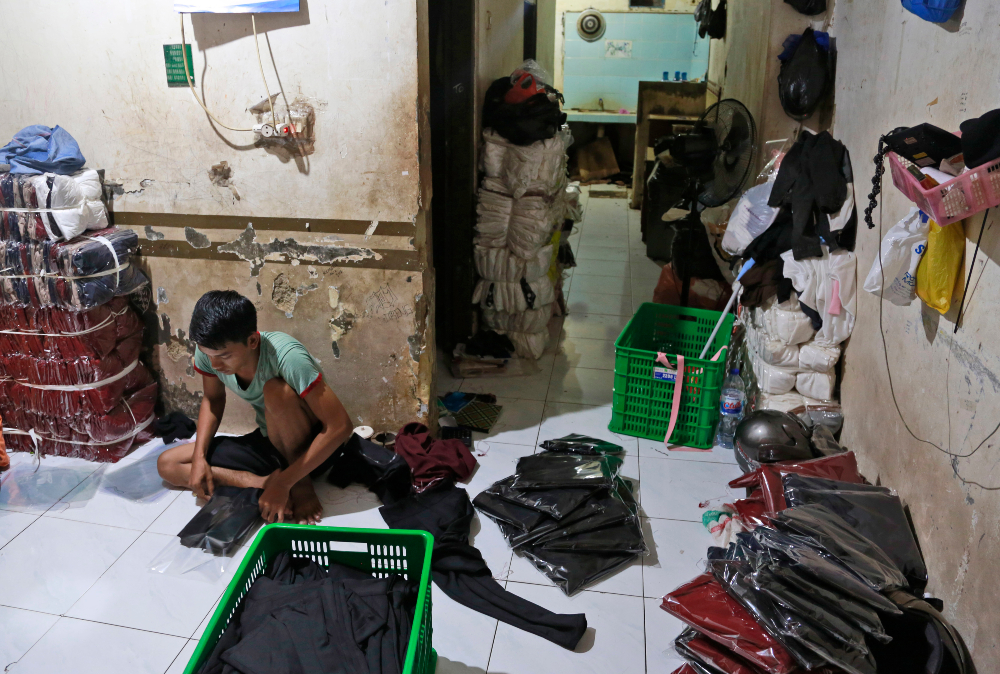
Category: General
Country: Indonesia
Author:
Mayu Saini, MARCH 2, 2021 4:04 PM ET
Citing the fallout from the pandemic and a subsequent decline in gross domestic product (GDP), the Indonesian government has decided to impose a safeguard tax to help the nation’s garment industry.
The duty will range from 44 cents to $11.29 per piece on ready-made garments imported from China, Vietnam, Singapore and Bangladesh, and is expected to be imposed within the next 90 days.
Last year, the Indonesian Textile Association (API) anticipated a compound annual growth rate (CAGR) of 5 percent for the textile and garment sector, but Covid-19 wreaked havoc with those plans, with the country’s GDP dropping for the first time since the 1998 Asian financial crisis, contracting 2 percent year-over-year in 2020.
However, analysts believe that the path to recovery has already begun, spurred on by recovering household and capital spending. The government has also been working on helping apparel manufacturers by improving critical infrastructure like highways and ports, and helping ease business in terms of incorporation procedures under the recently introduced Omnibus Law.
While Indonesia has been one of the top 12 countries for apparel manufacturing and sourcing over the past two decades, global brands have also been paying attention to the fast-growing domestic market there. This is a two-sided coin, as many wonder if imposing a safeguard duty will dent the nation’s $16.4 billion apparel market at home.
Many analysts believe that the growing number of consumers in Indonesia (the world’s fourth-most-populous country, with a median age of 28.6) could turn to more upscale options in terms of shopping for both local and globally manufactured apparel.
An estimated 30 percent of Indonesia’s total production goes toward meeting domestic demand, with the remainder exported to the U.S. (36 percent), the Middle East (23 percent), the EU (13 percent), and China (5 percent).
Meanwhile, the government is taking no chances in enhancing protection for the local apparel industry. Deliberations to impose the safeguard have been ongoing since November, after authorities launched a “safeguard investigation” that sought to determine “whether increased imports of a product are causing, or threatening to cause, serious injury to a domestic industry,” according to the World Trade Organization (WTO).
WTO noted that when local production is threatened by excessive imports, the safeguard measures can be imposed.
Bangladesh, which already faces a stiff 25 percent tariff for apparel imports into Indonesia, is set to be significantly affected when the duties take effect.
China, Vietnam and Singapore currently have duty-free access to the country.
Industry heads in Bangladesh are opposing this additional blow to its garment industry, which has been suffering outsize losses due to cancellation of orders from brands in the EU and the U.S.
“Imposition of additional duties adds to the burden on the industry,” said Mohammad Hatem, Vice President, Bangladesh Knitwear Manufacturers and Exporters Association (BKMEA).
Concerned about the fallout and impact on the Bangladesh sector, which exports an approximate $30 million worth of apparel to Indonesia, Rubana Huq, president of the Bangladesh Garment Manufacturers and Exporters Association (BGMEA), said that imports of $187 million worth of textiles in 2019 into Bangladesh from Indonesia put the balance in favor of Indonesia either way. “The import of textiles by Bangladesh, which goes to the production of export-oriented garments, is allowed to enter duty-free here,” she said.
Courtesy:
https://sourcingjournal.com/topics/sourcing/indonesia-duties-garment-sector-apparel-textiles-china-bangladesh-bgmea-265336/
Copyrights © 2025 GLOBAL TEXTILE SOURCE. All rights reserved.